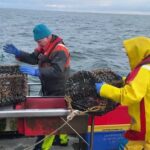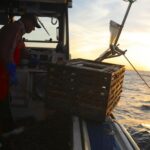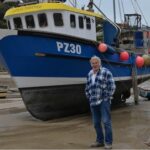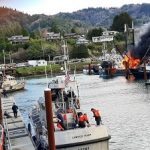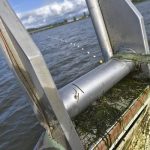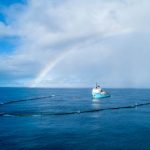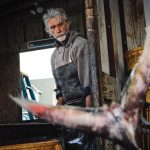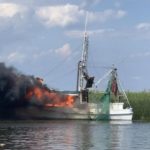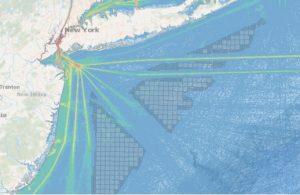Daily Archives: March 28, 2022
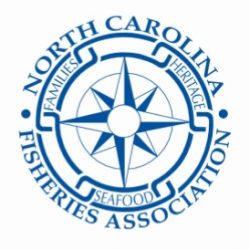
North Carolina Fisheries Association Weekly Update, March 28, 2022 – Seafood Consumers Beware
Seafood Consumers Beware The post below was made by the Coastal Conservation Association (CCA) of North Carolina. After decades of promising NC anglers more fish and then supporting every recreational harvest reduction that’s been proposed, over the last 25 years, it appears the CCA has shifted its focus to North Carolina’s seafood consumers. I guess they’ve taken all they can from the anglers who like to harvest a mess of fish but feel seafood consumers still have more to give. While their message seems innocent enough, expressing a love of seafood and concern for the stock, don’t be fooled! >click to read< 19:50
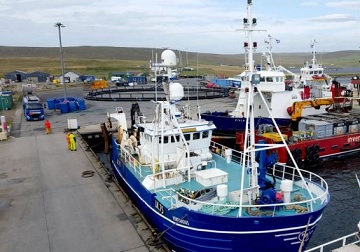
It’s hard to go green if you’re facing the red
It is a fact brought back into focus by the war in Ukraine. For decades, governments have promoted and promised a move away from oil and gas, getting ever greener, at least in their messaging, in response to the justified eco-concerns of modern-day voters, writes Daniel Lawson, newly appointed executive officer at the Shetland Fishermen’s Association. Now energy costs are rising even higher, our reliance on imports is being called into question – and our governments, who only a few months ago hosted the COP26 climate conference in Glasgow – are having to reconsider just how green our society can really afford to be in this moment. This sharp rise in fuel costs affects us all, every household, every industry. Such remains the scale of our reliance – still – on fossil fuels. The practical reality is that we can’t yet manage without oil and gas. It’s an example that highlights a wider point: it’s hard to go green if you’re facing the red. >click to read< 19:01
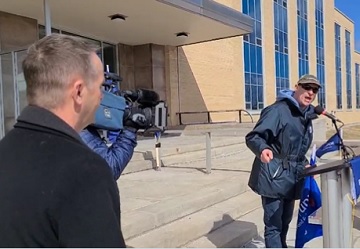
Fisheries Minister Confronted by Protestors at FFAW Rally
Fisheries Minister Derrick Bragg stepped into a lion’s den earlier today as he addressed a crowd gathered at an FFAW protest. The Union organized rallies in St. John’s and Corner Brook to highlight issues around the setting of fish prices. The crowd was loud during the initial speeches, but things took a turn when provincial Fisheries Minister Derrick Bragg took to the microphone. Bragg faced heavy criticism from the vocal crowd on the steps of Confederation Building during his speech. photos, video, >click to read< 16:05
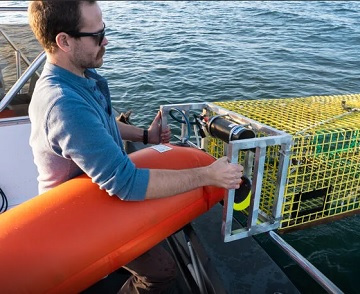
R.I. innovator develops ‘ropeless’ lobster fishing technology
Traditional lobster and crab traps operate through a simple mechanism, using ropes and buoys. Vincent “Bud” Harold, president of DBV Technology LLC in North Kingstown, believes he has the solution: one of his company’s signature products, the RISER. While traditional lobster and crab traps are rigged by rope to a buoy, the Ropeless RISER uses underwater acoustics to send signals from a fishing vessel to gear on the ocean floor. This signal triggers an underwater bag on the trap to inflate with air,,, >click to read< 14:41
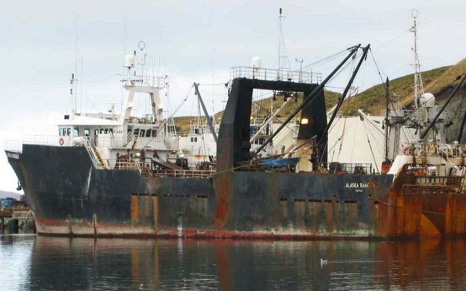
F/V Alaska Ranger—the historic Bering Sea rescue that defied the odds
On Easter morning in 2008 at approximately 3:00 a.m., the fishing vessel F/V Alaska Ranger’s mayday call raced across radio waves of the Bering Sea bound for the radio room of any Coast Guard rescue center within reach. Forty-seven fishermen aboard the Alaska Ranger were donning survival suits for what would become one of the largest and most dramatic rescue cases in modern Coast Guard history. At the time, the 378-foot high-endurance Coast Guard Cutter Munro was on patrol near the Bering Sea fishing fleet. For days before its mayday call, the fishing vessel had been forcing its way through destructive pack ice. Very early on March 23, without any warning, frigid water began rushing into the ship’s rudder room, flooding adjoining spaces and disabling the ship. The Alaska Ranger lost steering and power and was at the mercy of the unforgiving Bering Sea. photos, >click to read< 13:41
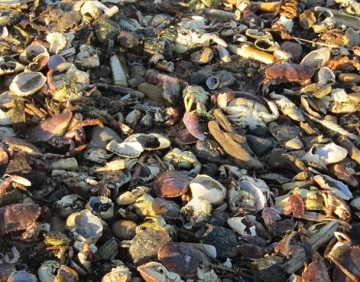
Yorkshire crab and lobster deaths: Government closes investigation for second time
The North Sea around the Tees Estuary has been affected by the issue as far south as Staithes and Whitby since last autumn, when large numbers of dead crustaceans washed up on beaches. An investigation was launched and after causes such as pollution, disease and undersea cable disturbance were ruled out, it was eventually announced that toxic algae was responsible. Yet fishermen are still reporting poor catches,,, >click to read< 11:29
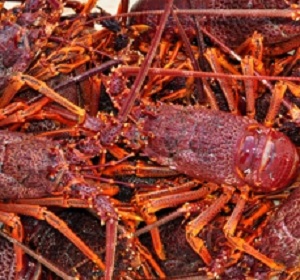
Licence fee reduction among government’s lobster support
The state government is set to provide relief to the state’s commercial rock lobster industry including a 50 per cent reduction in licence fees and an independent review into cost recovery. The industry has continued to feel the effects of ongoing trade sanctions imposed by China, which had been its biggest market, on top of a decline in domestic markets due to COVID-19. This includes a 50 per cent reduction in commercial rock lobster licence fees for the next year, which the government says will save the industry nearly $2.6 million in 2022-23 according to current Rock Lobster Cost Recovery Statements for 2021-22. >click to read< 09:45
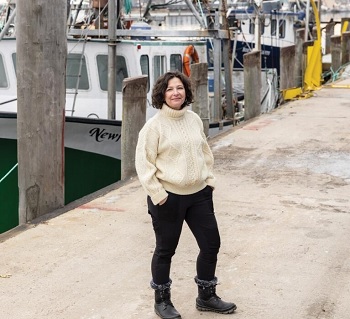
Can True Fin Buoy Maine’s Floundering Groundfish Fleet?
It’s true, there are plenty of fish in the sea. Maine fishermen, though, haven’t had much choice but to leave them there. Over the past several decades, the state’s groundfishing fleet dwindled because of low market prices, suppressed by international competition, that didn’t keep up with the cost of gear, diesel, and labor. By 2020, groundfish, including New England staples cod, haddock, halibut, and flounder, accounted for just 1 percent of Maine’s commercial catch. Most of what’s landed nowadays is shellfish. For finfish, many restaurants have to source from elsewhere what’s abundant just offshore. >click to read< 08:47

































